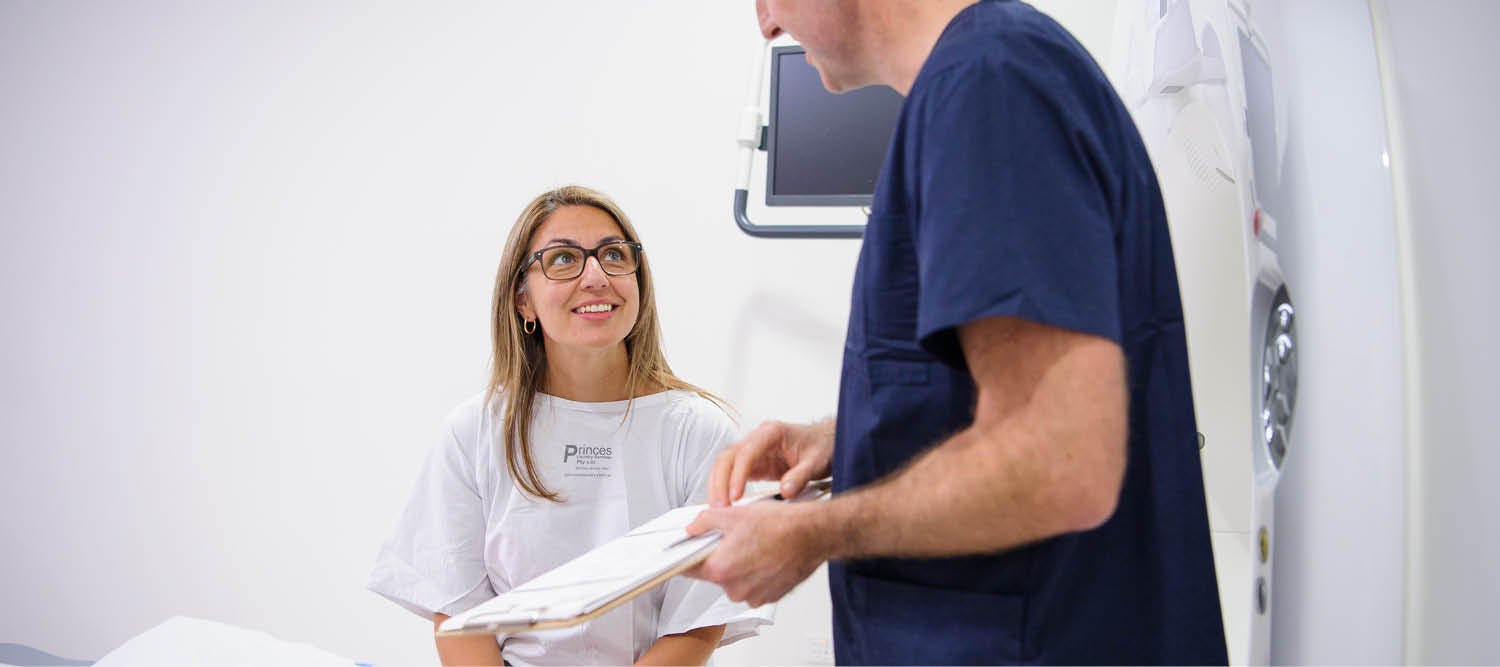
Your safety
Your safety

Key points
- I-MED uses low-dose imaging for optimal safety and accuracy
- Contrast media is safe; our staff are trained for allergic reactions
- Infection control follows strict national standards
Our commitment to your safety is our highest priority. We invest time, effort and resources into making sure that every patient receives a quality medical imaging service utilising the most appropriate imaging techniques and the lowest possible dose of radiation. Our radiology staff are highly skilled technicians who are licensed to operate our modern diagnostic imaging equipment. They also actively participate in ongoing training and a process of continuous improvement to ensure our high safety and quality standards are maintained.
Radiation safety keyboard_arrow_down
We, at I-MED Radiology, have long prided ourselves on our ability to obtain diagnostically accurate images using the absolute lowest dose of radiation necessary. We take a very proactive stance regarding patient safety. Paramount to this is the issue of radiation dose. Our highly skilled technicians and doctors are continually monitoring and reviewing our imaging protocols and equipment maintenance procedures to ensure the highest standards in safety are maintained. In addition, all our equipment is routinely serviced and maintained by the equipment manufacturers and in 208 CT, PET and SPECT systems across our Network we have implemented a radiation dose monitoring software solution (DOSE).
Contrast injections keyboard_arrow_down
I-MED Radiology uses non-ionic contrast media, the safest intravenous contrast media available.
Sometimes an injection of contrast media is necessary to enhance the quality and diagnostic accuracy of the examination. Following an injection of contrast media you may experience a sensation of heat, an unusual taste or smell and a tingling sensation in the pelvic area. These symptoms are common and very transient. The contrast is eliminated from the body by the kidneys and is excreted in the urine within hours of the initial injection. Patients are encouraged to drink additional clear fluids following their examination to assist kidney filtration. Occasionally, patients experience minor allergic reactions such as hives. In rare cases a major allergic reaction can occur. Our staff are trained in the management of allergic reactions and all sites that administer intravenous contrast media are equipped with emergency medications, should a patient experience a severe reaction. Patients with a history of allergic reactions, asthma, diabetes, kidney failure or heart disease may require additional precautions to minimise possible complications from a contrast injection.
Infection control keyboard_arrow_down
I-MED Radiology infection control guidelines are based on state and federal guidelines and standards, supported by advice from local specialist Microbiologists and utilise currently accepted practices and procedures.
Our clinics use disposable, single use gloves, catheters, needles and syringes. They provide gowns, face masks, protective glasses and sterilising fluids for use in appropriate infection control guidelines. Medical equipment that is to be re-used is cleaned and sterilised in accordance with Australian Standard (AS/NZS 4815).
For further information regarding infection control please view the below resources:
Patient Information on Healthcare Associated Infections
Safety information for diabetics keyboard_arrow_down
Product information for diabetic sensors (CGM) and insulin pumps indicate the potential for malfunction if directly exposed to x-rays. Please notify staff of any diabetic equipment attached to you prior to your procedure/appointment. You MAY be asked to remove or disconnect the device prior to the exam, or more closely monitor their performance/accuracy after the exam.
Diabetic sensors (CGM) or insulin pumps MUST NOT be taken into MRI under any circumstance.
